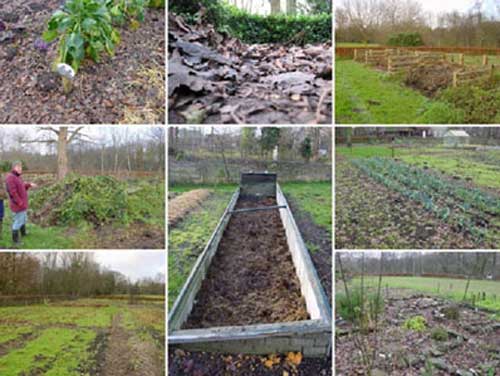MILIEUVRIENDELIJK TUINIEREN.NL

environmental friendly gardening
Key Innovation
With help of information and tips in brochures and the website, people can use less or no herbicides at all to keep their garden healthy. The knowledge is very old, the way it is used and exchanged new: via a website and a forum. More people get access to the information.
Problematic background and context
People tend to use herbicides and fertilizer to try to keep the plants in their garden healthy and grow well. From an ecological point of view this can be done in a better way, using less or even no chemicals. Nowadays the needed knowledge for ecological gardening is no longer wide spread. The milieuvriendelijktuinieren-project was a project financed by government and executed by DLVGroen&Ruimte. Aim is to stimulate ecological gardening.
Solution description
Most gardens aren’t as environmently friendly as it seems. The use of machines and especially chemicals has risen the last years. Environment friendly gardening is a new way of maintaining your garden. It restores the natural cycle, by using the garden like nature self would do. By using for example the dead plants as nutrition for the garden, and destroying diseases by using the right bugs. The site www.milieuvriendelijktuinieren.nl and the organization VELT (Vereniging voor Ecologisch Leef- en Teeltwijze, http://old.velt.be) stimulate environment friendly gardening. This through providing information on a website, spreading newsletters, brochures and keeping up a knowledge bank. VELT also organizes meetings. People can become member. They have an example garden which they maintain together and where they explain the possibilities.
Timeframe
The DLV-project started in 1995 and was finished in January 2005. The VELT initiative is more sustainable in that it is an association of which people become member. There are 13.000 members and it is still growing.
Development phase
Diffusion:
The DLV-project has been finished recently.
Maturity:
The VELT-association already exists several years, has 13.000 members and is still growing.
Revenue/costs model
The costs of this solution are very low, in fact it can safe you some money. This because the method provided makes use of free available products and services from your own garden. The costs made for spreading the information is paid by the members or is funded by the government.
Social evaluation
With help of environment-friendly gardening more awareness is created in the society. People understand the natural lifecycle better. Most people are raised with intensive agriculture that uses fertilizers and doesn’t treat the plants and nature with respect.
Environmental evaluation
This method is good for the environment, as no fertilizers or toxic chemicals are being used. The plants are healthier, because they are exposed to bacteria and fungus, and thereby have their own resistance against them. This is a kind of natural selection of the fittest.
Economical evaluation
When a lot of people cultivate their own vegetables, the farmers and shops will sell less of their products. This doesn’t need to be bad for the economy, because people can spend their money in a different way. For instance on gardening tools, relevant books and seeds. Gardening can become a more popular hobby, and this kind of gardening can be an opportunity for a new range of products and services.
Authors
Roy Damgrave, Remco van den Broek / TU Eindhoven / Netherlands